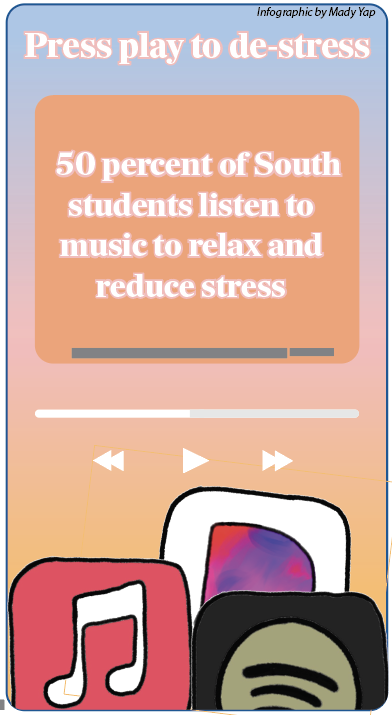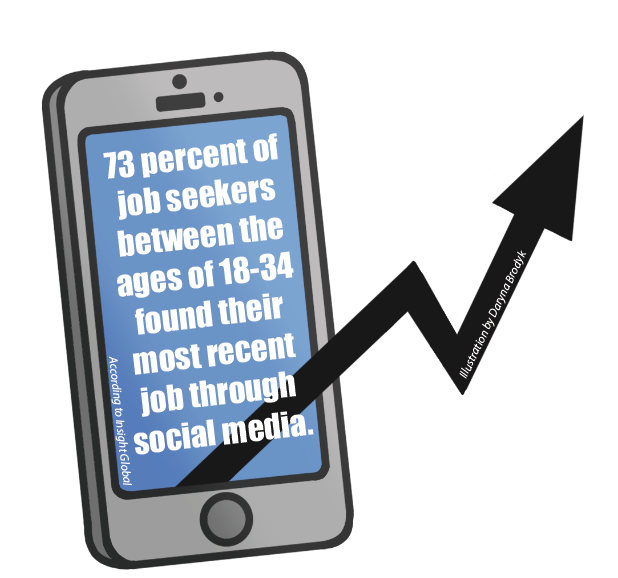Life is full of different struggles, including fights with friends and family, stress from schoolwork, loss of loved ones and mental disorders like anxiety and depression. Although some of these issues may seem more severe than others, any problem must be addressed before it can begin to be resolved. The Oracle Editorial Board recognizes that it is difficult to go through challenging situations alone, and encourages students to utilize the support system that is available to them at school in the Student Services Department.
Although many students may only know the Student Services Department as the location of the guidance counselor offices, it is also the workplace of South’s three school psychologists and six school social workers. According to School Psychologist Rebecca Pollack, the psychologists and social workers assess students’ psychological well-being and counsel students through a variety of mental health concerns. In fact, according to a recent Oracle-conducted survey of 171 students, 31 percent of students have sought help from a school social worker or psychologist.
However, according to the same survey, 53 percent of students believe that there is a stigma related to visiting a school social worker or psychologist. Junior Anna Hofmockel, who sought help during her sophomore year for anxiety and depression, recognizes that many students feel a stigma against seeking help. Additionally, she believes that speaking with a social worker has helped her feel more comfortable at school.
“It’s helped a lot just knowing that if I’m having a really bad day, that there’s always somebody at the school that understands…what I’m going through,” Hofmockel said. “[It is helpful] knowing that you’re not alone in the situation, because a lot of kids get help and you don’t realize it.”
There are a variety of sources of help at school. According to School Psychologist Jennifer Pape, each guidance counselor works with a psychologist, a social worker and a dean. Though a guidance counselor’s main responsibility is ensuring that each student is academically on-track, some counselors regularly meet with students to talk through personal issues. A social worker’s main function is to individually counsel students who need a higher level of support.
As a school psychologist, Pape’s main role is to diagnose mental health issues and to evaluate students for eligibility for specialized academic accommodations, Pape said. However, she also counsels a small number of students. Most of the students she meets with deal with short-term issues, like going through a breakup or a fight with a friend. Pape recognizes that no problem is too small to seek help for.
“I’d like to see more kids coming down [to the Student Services Department] just for problem-solving and figuring out how to grow up,” Pape said. “[Growing up] is hard.”
According to Pape, every mental health professional at school follows specific rules regarding confidentiality on what students discuss during counseling sessions. Parents need to be alerted if a students talks about hurting themselves, hurting others or being hurt by others.
This confidentiality does not only apply to individual conversations with a social worker. According to David Hartman, school social worker, for students who feel that they would benefit more from speaking through their issues with other students, private support groups are another option. There are 14 support groups at school, in which eight to 12 students come together during one class period each week to seek help in coping with issues including anxiety, grief, addiction and social skills, with each group focused on one specific issue.
Hartman encourages students to reject any stigma they might feel and view talking with a social worker or in a support group as a normal, proactive step in maintaining mental health.
“My goal is always to know every student’s name […] The more people I know, the less stigmatized a student is going to be,” Hartman said.
If you need help with some issue in your life, head down to the Student Services Department during any time of the school day. The department is even situated away from classrooms near the front of the school to make students feel more private about seeking help, according to Pollack. Whether this help can be found in a guidance counselor, a social worker, a psychologist or simply in a friend, the Student Services Department can help students create a support system.
Even several members of the Oracle Editorial Board have sought support from the department and found it very beneficial. In the experience of such members, the social workers and counselors are there for you when you need them, and they recognize that the level of support a student needs will fluctuate. However, your best resource in maintaining mental health is your ability to advocate for what you need so you can get back to being a happier and more fulfilled you.













